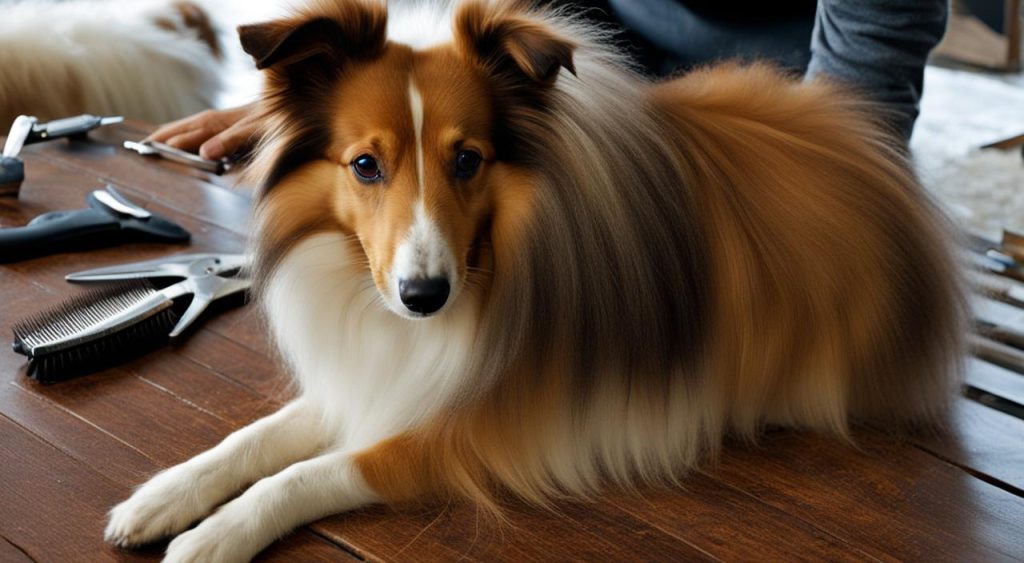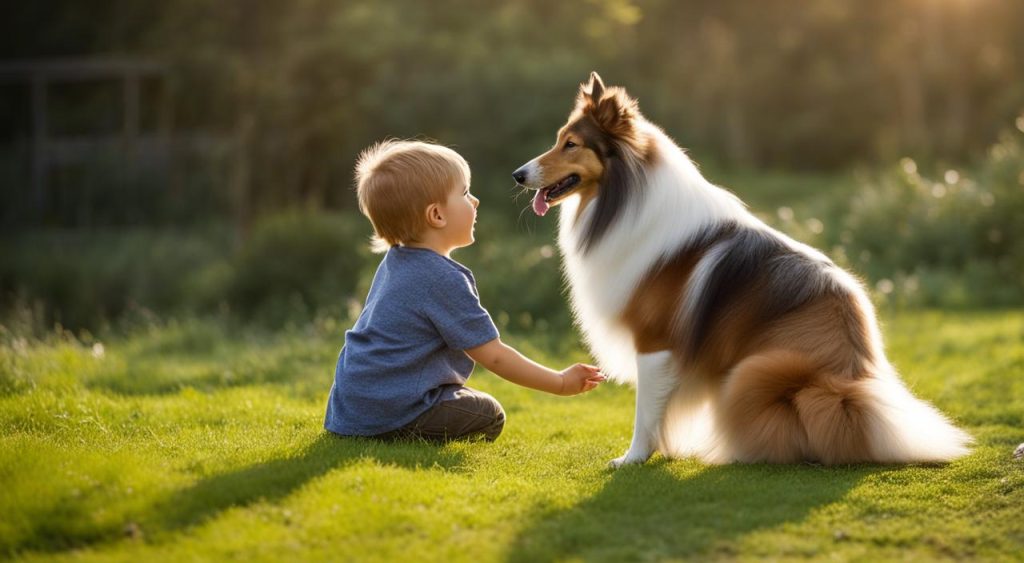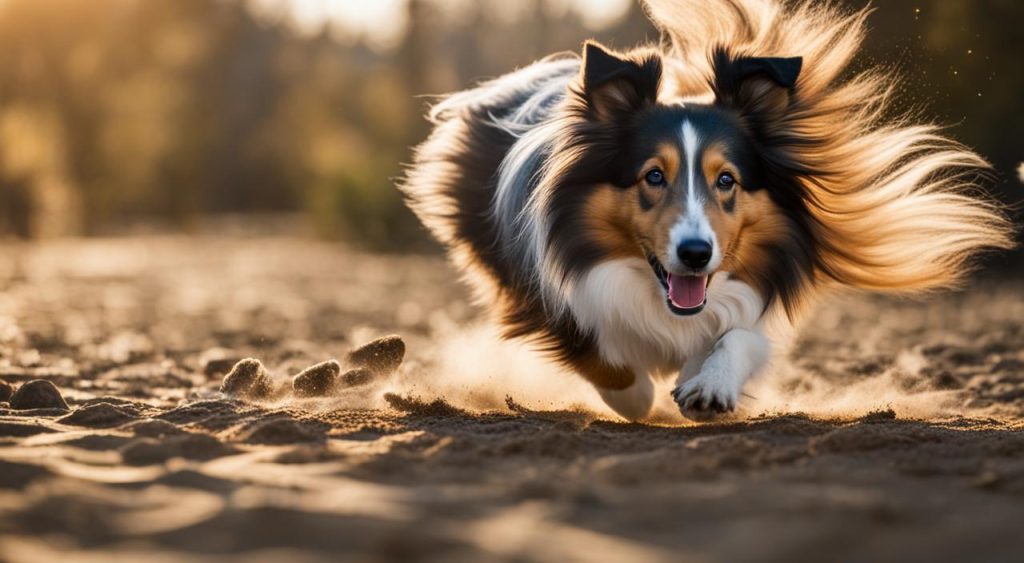The Shetland Sheepdog, also known as a Sheltie, is a breed that requires regular grooming and exercise. They have a long, straight coat that comes in various colors and a dense undercoat, which means they shed profusely. Shelties should be brushed at least twice a week to prevent matting and to collect loose hair. They also need occasional trims to keep their coat neat. In terms of exercise, Shetland Sheepdogs are active and energetic dogs that require ample physical and mental stimulation to prevent unwanted behaviors. This can be achieved through daily walks, playtime, and engaging activities like obedience training and agility sports. It’s important to provide a proper diet and nutritional supplements to ensure their overall health and wellbeing. Some common health issues in Shelties include hip dysplasia, Collie Eye Anomaly, Sheltie Skin Syndrome, thyroid disease, von Willebrand’s disease, and epilepsy. Regular veterinary check-ups and proper care can help manage these conditions and ensure the Shetland Sheepdog lives a healthy and happy life.
Key Takeaways:
- Shetland Sheepdogs have a long, straight coat that requires regular brushing to prevent matting and to collect loose hair.
- Occasional trims are necessary to keep their coat neat.
- Shetland Sheepdogs are active and energetic dogs that need sufficient exercise and mental stimulation.
- A proper diet and nutritional supplements are important for their overall health and wellbeing.
- Regular veterinary check-ups and proper care are essential for managing common health issues in Shelties.
Shetland Sheepdog Temperament and Behavior
Shetland Sheepdogs are known for their gentle and eager-to-please personalities. They are intelligent, responsive, and excel in obedience and agility training.
Shelties are generally peaceful with strangers and other animals, but they can be reserved and sometimes timid with unfamiliar people. To build a confident temperament, socialization is important. Early exposure to different people, animals, and environments can help them become well-rounded and confident dogs.
“Shetland Sheepdogs are highly sensitive and can be easily overwhelmed by stressful situations or loud voices,” explains Dr. Jane Harper, a canine behavior specialist. “They require a harmonious and calm environment to thrive.”
These dogs are naturally active and require regular exercise to keep them mentally and physically stimulated. They enjoy advanced obedience training, agility, and herding activities. Mental exercises, such as challenging games and interactive toys, are also essential for their overall wellbeing.
Shetland Sheepdog Grooming and Care
The Shetland Sheepdog, with its beautiful long double coat, requires regular grooming to keep it in good condition. This breed has a thick undercoat and a longer outer coat that sheds heavily, especially during shedding seasons. To prevent matting and collect loose hair, it is important to brush your Sheltie at least twice a week.
While regular baths are not necessary, occasional baths can help keep their coat clean and fresh. To maintain a neat appearance, it is advisable to have professional grooming sessions that include trimming out mats.
In addition to coat care, Shelties also require routine care for their eyes, ears, and skin. Cleaning their eyes with a soft cloth or pet-friendly wipes can prevent debris build-up. Regular ear cleaning with a veterinary-approved cleanser is necessary to maintain healthy ear canals.
As with any breed, Shetland Sheepdogs are prone to certain health issues, such as Sheltie Skin Syndrome. Regular veterinary check-ups and a healthy diet are essential for their overall health and wellbeing.





